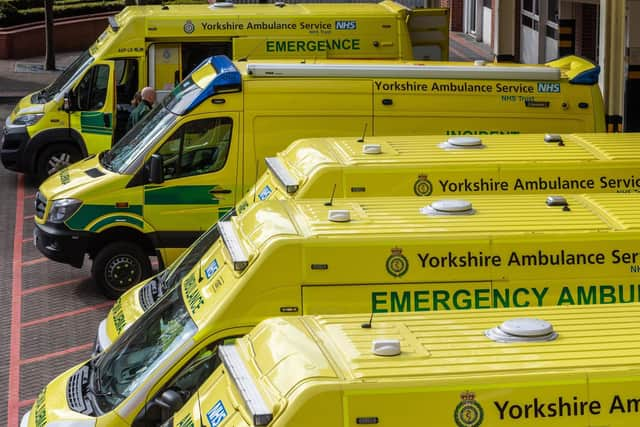The location of every new Covid death at Yorkshire hospitals as total rises by 28
It brings the total number of coronavirus patients to have died at hospital in Yorkshire to 3,937.
Deaths were recorded where a patient either tested positive for Covid-19 or where no positive test result was received for Covid-19, but Covid-19 was mentioned on their death certificate.
Advertisement
Hide AdAdvertisement
Hide AdNHS England releases updated figures each day showing the dates of every coronavirus-related death at hospitals in England, often including previously uncounted deaths that took place several days or even weeks ago.


Deaths were recorded at the following hospital trusts:
Barnsley Hospital NHS Foundation Trust - 5
Bradford Teaching Hospitals NHS Foundation Trust - 4
Calderdale and Huddersfield NHS Foundation Trust - 3
Doncaster and Bassetlaw Hospitals NHS Foundation Trust - 2
Hull University Teaching Hospitals NHS Foundation Trust - 1
Leeds Teaching Hospitals NHS Trust - 2
Mid Yorkshire Hospitals NHS Trust - 1
Northern Lincolnshire and Goole NHS Foundation Trust - 2
Sheffield Teaching Hospitals NHS Foundation Trust - 6
York Teaching Hospital NHS Foundation Trust - 2
Across all English hospitals, a further 132 people who tested positive for coronavirus have died, bringing the total number of confirmed deaths reported in hospitals to 36,322.
It comes as one of the scientists behind the first Covid-19 vaccine to clear interim clinical trials has said the impact of the jab will kick in next summer, and normality should return by next winter.
Professor Ugur Sahin, chief executive of BioNTech, said it was “absolutely essential” to have a high vaccination rate before autumn next year to ensure a return to normal life next winter.
Advertisement
Hide AdAdvertisement
Hide AdHe acknowledged that the next few months will be “hard” and that the promising preliminary results on the vaccine, created in partnership with Pfizer, will not have an impact on infection numbers in the current wave.
Interim results from the jab were found to be more than 90% effective, the two firms announced last week, but safety and additional efficacy data continue to be collected.
“If everything continues to go well, we will start to deliver the vaccine end of this year, beginning next year,” Prof Sahin told the BBC’s Andrew Marr Show.
“Our goal is to deliver more than 300 million of vaccine doses until April next year, which could allow us to already start to make an impact.
Advertisement
Hide AdAdvertisement
Hide Ad“The bigger impact will happen until summer, the summer will help us anyway because the infection rate will go down in summer.”
He added: “What is absolutely essential is that we get a high vaccination rate before autumn/winter next year, so that means all the immunisation, vaccination approaches must be accomplished before next autumn.
“I’m confident that this will happen, because a number of vaccine companies have been asked to increase the supply, and so that we could have a normal winter next year.”
Prof Sahin said on Sunday the “key side effects” seen so far were a mild to moderate pain in the injection site for a few days, while some of the participants had a mild to moderate fever for a similar period.